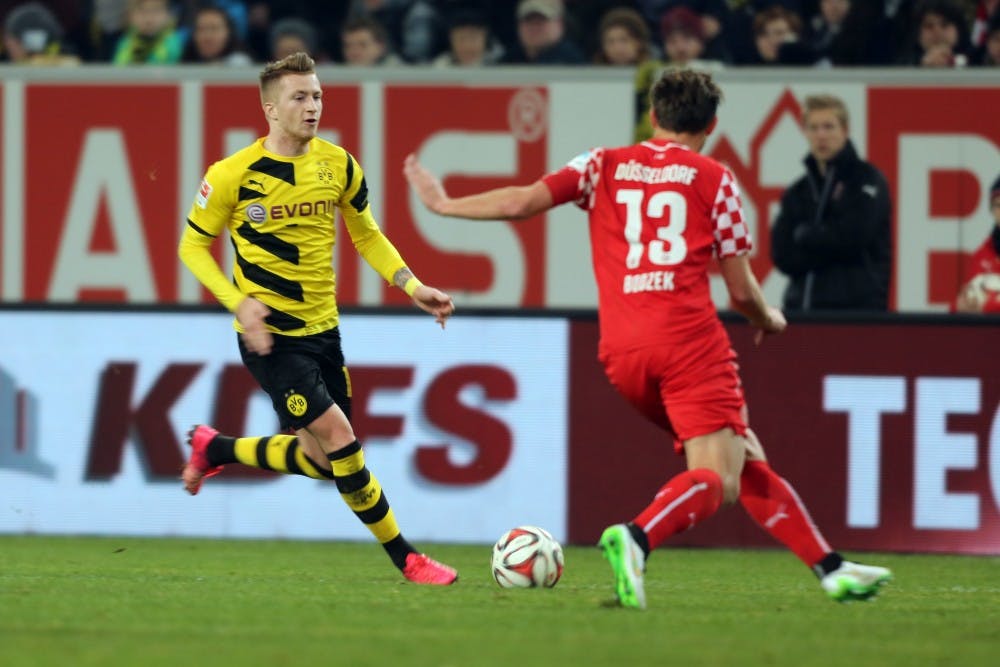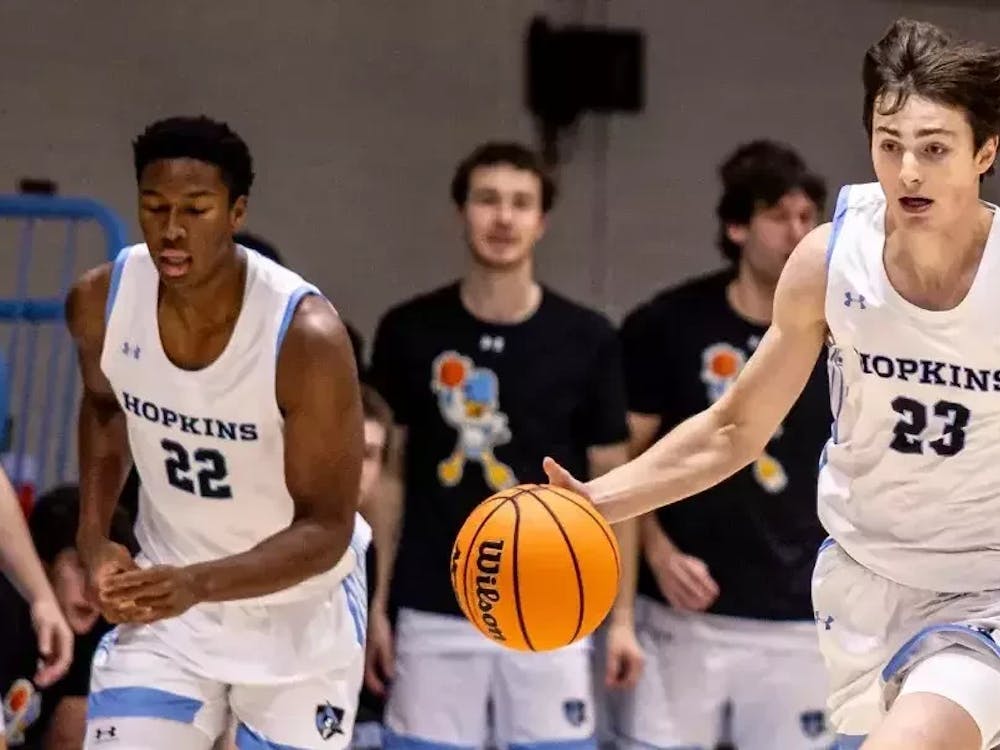
Almost every country in the world has its own soccer league, and in every league there are teams surviving only on the heartfelt support of their local fans. Some teams, however, thrive not only on the fans from the area but fans from across the world.
This isn’t exactly how Major League Soccer teams succeed (there aren’t many people in England who were even following Los Angeles Football Club’s historic year or New York City Football Club’s massive unbeaten run in the final half of the season), but in the “Big Five” leagues in Europe, this is very common.
In case you don’t know, I’m talking about the English, Spanish, Italian, German and French leagues. These leagues all are made up of 18 to 20 teams, many of whom are playing with a ton on the line.
In the English Premier League, finishing 13th instead of 14th could land you an extra £2 million. That’s no small deal, especially since some smaller teams have a budget of under £100 million to begin with.
Even watching from America, these stories and these leagues are fascinating to follow. I don’t want to talk about England, though. It’s the most popular league in the world, the most widely tracked and by far the most financially profitable.
The thing is, in the other top four leagues, it’s been a while since there was an actual title race. These competitions don’t have playoffs. If you come in first place after a grueling 36- or 38-game season that spans from August to May, then you get the trophy, which means that dominant teams don’t often slip up to significantly less talented ones and squander the championship. This makes upsets all the more rare and much more fantastical.
For this reason I want to talk about Germany, or as their league is called, the Bundesliga.
Frankly, the Bundesliga has been boring for years. Bayern Munich, the most successful team in the history of German soccer, hasn’t lost a title since 2012. They also haven’t finished lower than third place since 2007, when VfB Stuttgart, a team that has since been relegated from the top division, won the title.
Munich is a force to be reckoned with, and they have been for close to a decade. In that time they’ve won the Champions League, as well as made up the majority of the German World Cup team that won the tournament in 2014. For years, nobody has even posed a threat.
That all changed last year, when Borussia Dortmund, the last team other than Bayern to win the league title, finally seemed ready to perform on the level everyone always thought they were capable of, but one they never managed to reach.
Fueled by young talented stars like Achraf Hakimi, American icon Christian Pulisic (since sold to Chelsea for $70 million) and Jadon Sancho, an English teenager who could feasibly one day be the best player in the world, Dortmund started off strong in the 2018-19 season.
Led by captain Marco Reus, who was healthy for the first time basically since Dortmund won the title in 2012, everything seemed to be going their way.
Munich was old. Their best players had already announced they would be leaving after the season ended because they could no longer play at such a high level. Three of their other stars had been publicly dropped from the German national team after a disastrous World Cup. The stars were aligned for it to finally be Dortmund’s year again.
And then Dortmund blew it, unable to defend properly in the last month of the season, allowing Munich to storm back and take the title once more, their seventh consecutive Bundesliga championship.
However, there was hope that change was coming. For the first time in years, Bayern only clinched the title on the last day of the season. For reference, in 2018, they clinched with nearly a month left to play. So, there was progress. Maybe, just maybe, the 2019-20 season could be the oneAlmost every country in the world has its own soccer league, and in every league, there are teams surviving only on the heartfelt support of their local fans. Some teams, however, thrive not only on the fans from the area, but fans from across the world.
This isn’t exactly how MLS teams succeed (there aren’t many people in England who were even following LAFC’s historic year or NYCFC’s massive unbeaten run in the final half of the season), but in the “Big Five” leagues in Europe, this is very common.
In case you don’t know, I’m talking about the English, Spanish, Italian, German, and French leagues. These leagues all are made up of eighteen to twenty teams, many of whom are playing with a ton on the line.
In the English Premier League, finishing 13th instead of 14th could land you an extra two million pounds. That’s no small deal, especially since some smaller teams have a budget of under a hundred million pounds to begin with.
Even watching from America, these stories, these leagues, are fascinating to follow. I don’t want to talk about England, though. It’s the most popular league in the world, the most widely tracked, and by far the most financially profitable.
The thing is, in the other top four leagues, it’s been a while since there was an actual title race. These competitions don’t have playoffs. If you come in first place after a grueling 36 or 38 game season that spans from August to May, then you get the trophy, which means that dominant teams don’t often slip up to significantly less talented ones and squander the championship. This makes upsets all the more rare, and much more fantastical.
For this reason, I want to talk about Germany, or as their league is called, the Bundesliga.
Frankly, the Bundesliga has been boring for years. Bayern Munich, the most successful team in the history of German soccer, haven’t lost a title since 2012. They also haven’t finished lower than third place since 2007, when the title was won by VFB Stuttgart, a team that has since been relegated from the top division.
Munich are a force to be reckoned with, and have been for close to a decade. In that time, they’ve won the Champions League, as well as making up the majority of the German World Cup team that won the tournament in 2014. For years, nobody has even posed a threat.
That all changed last year, when Borussia Dortmund, the last team other than Bayern to win the league title, finally seemed ready to perform on the level everyone always thought them capable of, but one they never managed to reach.
Fueled by young talented stars like Achraf Hakimi, American icon Christian Pulisic (since sold to Chelsea for $70 million), and Jadon Sancho, an English teenager who could feasibly one day be the best player in the world, Dortmund started off strong in the 2018-19 season.
Led by captain Marco Reus, who was healthy for the first time basically since Dortmund won the title in 2012, everything seemed to be going their way.
Munich were old. Their best players had already announced they would be leaving after the season ended because they could no longer play at such a high level. Three of their other stars had been publicly dropped from the German national team after a disastrous World Cup. The stars were aligned for it to finally be Dortmund’s year again.
And then, Dortmund blew it, unable to defend properly in the last month of the season, allowing Munich to storm back and take the title once more, their seventh consecutive Bundesliga championship.
However, there was hope that change was coming. For the first time in years, Bayern only clinched the title on the last day of the season. For reference, in 2018, they clinched with nearly a month left to play. So, there was progress. Maybe, just maybe, the 2019-20 season could be the one where Bayern Munich finally fell.
And that’s exactly what I’m here to talk about, because I firmly believe that this is the year. The Bundesliga has never been more competitive, and Bayern is looking weak and exploitable.
Now, it won’t be easy. Over the offseason Bayern added some tremendous talent in Phillipe Coutinho and Ivan Perišić, two very, very good players. Coutinho was bought for over $115 million by Barcelona just two years ago, though he failed to fully impress there. Perišić is a 2018 World Cup finalist. Bayern is looking pretty replenished.
The thing is, the rest of the league has finally caught up. Bayern is still two points ahead of Dortmund, but they’re in third and eighth place respectively. The table is currently topped by Borussia Mönchengladbach (try saying that three times fast), a team whose best player was bought over the summer by Dortmund. In second is Wolfsburg, who won the league in 2009 and hasn’t been particularly relevant since.
While this sounds promising, these teams aren’t genuine threats. There have only been seven games, and some teams have just had very easy schedules or early success that they won’t be able to maintain. There’s really only so much that can be said based on early season success. Mönchengladbach has a great coach but not enough talent, and Wolfsburg frankly just isn’t that good.
If anyone will challenge the top dogs, it won’t be these teams.
If you want to follow a really exciting team, though, one that is young and hungry and up to the challenge, look no further than RB Leipzig. Leipzig is currently in fifth, but tied on points with Bayern in third (don’t worry about fourth, SC Freiburg is no real threat).
Leipzig’s coach is Julian Nagelsmann, who at age 32 is already regarded as the best manager in Germany. They have a team full of names that you may not recognize but are incredibly talented. Forward Timo Werner is lethal, defender Dayot Upamecano is a veritable brick wall, American midfielder Tyler Adams is very skilled, and the recently signed Ademola Lookman and Christopher Nkunku have massive potentials. The team is both exciting and promising.
With Dortmund destined to figure themselves out and pick up the pace, and Leipzig already cruising, the Bundesliga is going to be mesmerizing this year. Sports are more fun when it feels like so many teams have a legitimate chance to win it all. Nobody knows what’ll happen, but I can assure you, it’s well worth the watch.





